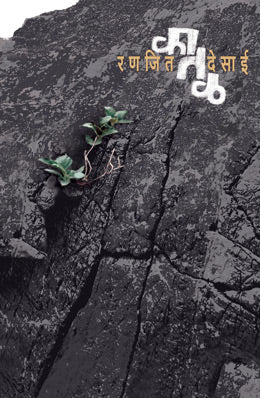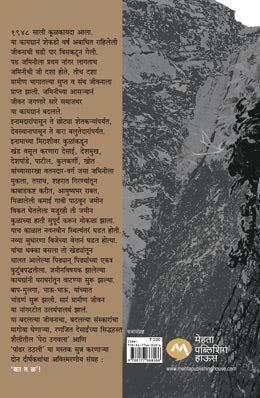KATAL
KATAL is backordered and will ship as soon as it is back in stock.
Couldn't load pickup availability
Genuine Products Guarantee
Genuine Products Guarantee
We guarantee 100% genuine products, and if proven otherwise, we will compensate you with 10 times the product's cost.
Delivery and Shipping
Delivery and Shipping
Products are generally ready for dispatch within 1 day and typically reach you in 3 to 5 days.
📘 Book Details
-
Publisher: Mehta Publishing House
-
Language: Marathi
-
Edition: 8th Edition
-
Year of Publication: August 1965
-
ISBN: 9788177668186
-
Pages: 120
-
Cover: Paperback
-
Category: Short Stories
📝 About The Book
"Peraaugawala & Pandhur Uthali" is a poignant collection that delves into the transformative impact of the Agriculture Tenancy Act of 1948 on rural society. The Act, designed to protect the interests of peasants, ultimately caused deep turmoil in the lives of those it was meant to help.
The stories in this collection unfold the chaotic aftermath of this law, shattering centuries-old systems that had governed land and relationships in the villages. Peraaugawala and Pandhur Uthali capture the essence of societal upheaval, as the once harmonious relationships among landlords, peasants, and workers were fractured by legal and economic pressures. The division of land and families, the collapse of the joint family system, and the ensuing disputes between brothers, fathers, and sons are skillfully portrayed, making the reader reflect on the deep scars left by this social and economic reformation.
This book is a reflection of a time when society was caught in the throes of change, struggling with identity, and grappling with the cost of modernization. The stories leave an indelible mark on the reader, urging them to reflect on the human cost of progress.







